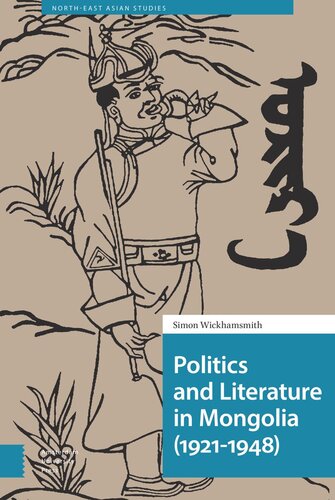

Most ebook files are in PDF format, so you can easily read them using various software such as Foxit Reader or directly on the Google Chrome browser.
Some ebook files are released by publishers in other formats such as .awz, .mobi, .epub, .fb2, etc. You may need to install specific software to read these formats on mobile/PC, such as Calibre.
Please read the tutorial at this link: https://ebookbell.com/faq
We offer FREE conversion to the popular formats you request; however, this may take some time. Therefore, right after payment, please email us, and we will try to provide the service as quickly as possible.
For some exceptional file formats or broken links (if any), please refrain from opening any disputes. Instead, email us first, and we will try to assist within a maximum of 6 hours.
EbookBell Team

4.1
10 reviewsThis study investigates the relationship between literature and politics during Mongolia's early revolutionary period. Between the 1921 socialist revolution and the first Writers' Congress, held in April 1948, the literary community constituted a key resource in the formation and implementation of policy. At the same time, debates within the party, discontent among the population, and questions of religion and tradition led to personal and ideological conflict among the intelligentsia and, in many cases, to trials and executions. Using primary texts, many of them translated into English for the first time, Simon Wickhamsmith shows the role played by the literary arts - poetry, fiction and drama - in the complex development of the "new society," helping to bring Mongolia's nomadic herding population into the utopia of equality, industrial progress and social well-being promised by the Mongolian People's Revolutionary Party.